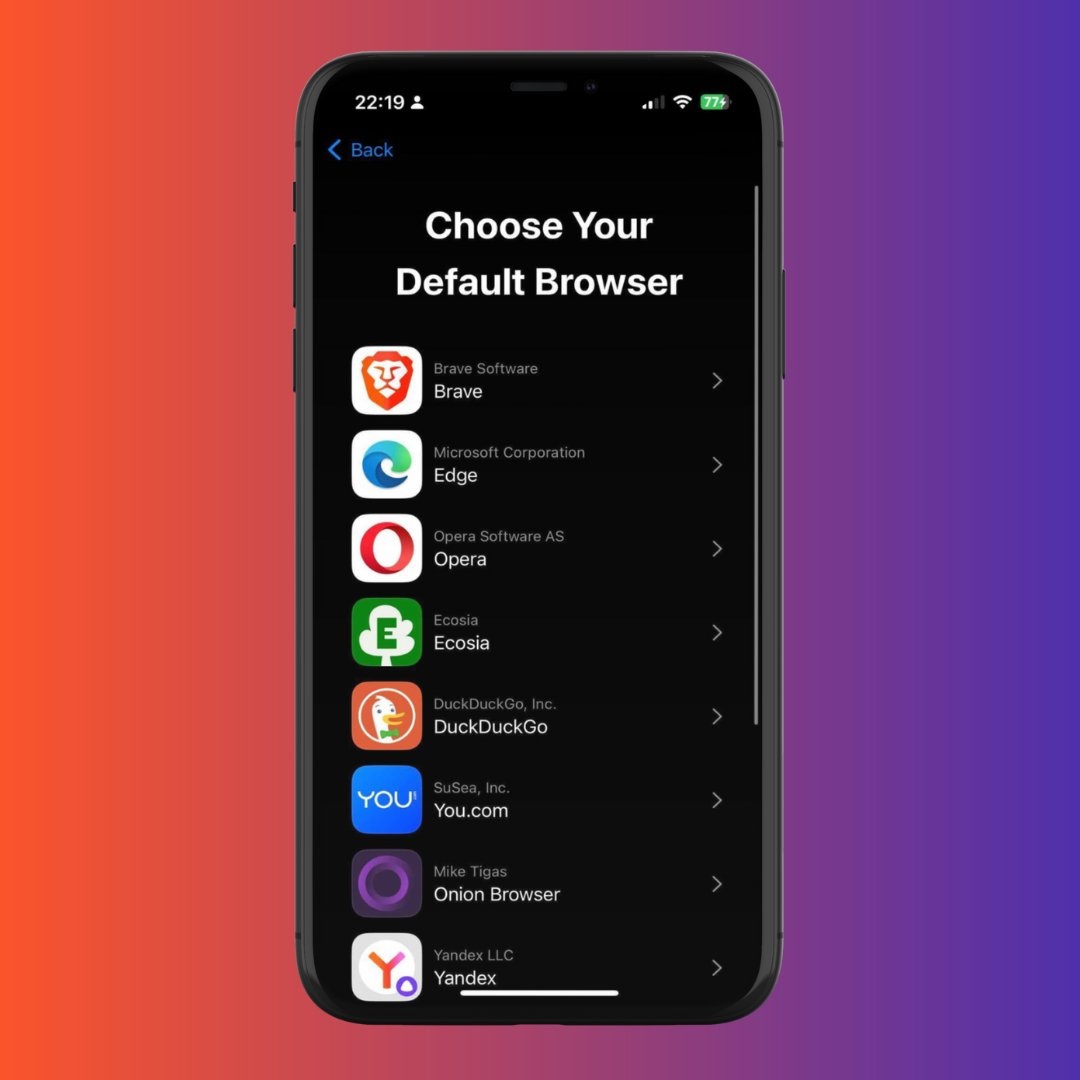Opera has reported a substantial 164% increase in new European Union users on iOS devices after Apple introduced a new feature to comply with the EU’s Digital Markets Act (DMA).
With iOS 17.4, Apple introduced a new choice screen that asks EU users to select a default web browser from a list of randomly listed browsers, including Opera.
When users open Safari for the first time after updating their phone, they will see a list of popular browsers in their region to choose from as their default browser.
To be on this list, a browser needs at least 5,000 downloads in the EU’s App Store from the last year. If a company has more than one browser app, only the most popular one is included.
“Up to 11 of the most downloaded browsers on iOS in that country in the prior year that meet the above criteria will be selected for the browser choice screen in addition to Safari,” Apple explained in a web page about the new browser choice screen.
“Apple will update the list of browsers eligible to be shown on the choice screen once per calendar year.”

Source: Brave
The new browser choice screen showcases up to 11 of the top downloaded browsers in users’ countries over the last year, along with Safari, all presented in a randomized order.
Google also rolled out a similar browser choice screen to Android users on March 6th, which will be shown during the initial setup of an Android smartphone or tablet.
Opera sees a surge in installs
After this new feature was rolled out, Opera now says they have seen significant growth across key EU markets for iOS and Android versions.
Apple users in France witnessed an impressive 402% increase in new Opera users. Spain, Poland, and Germany also saw a substantial rise in new users, 143%, 68%, and 56% respectively.
This data suggests a growing interest among iOS users in exploring browser alternatives like Opera.
Similarly, the Android version of Opera also experienced a boost, especially in France, where new user inflow rose by 54% on the day the browser choice screen was introduced.
“The day the ballot screen started to appear, we saw a spike in the growth of our daily active users, especially for Opera for iOS,” said Jørgen Arnesen, EVP Mobile at Opera.
“We see this as indicative of two things: for one, the importance of regulation to provide a more level playing field, and for another, that users are hungry for new and innovative products that can deliver a superior online experience.”
These findings are supported by an Opera survey conducted before March 6th, which showed that 80% of European smartphone users were open to trying a new browser.
The survey highlighted the importance of offering users more choice and transparency in selecting their browsers.
Opera is not the only browser company experiencing growth since the new DMA changes went into effect.
Brave had earlier tweeted about a spike in its iOS browser installations, further underscoring the impact of Apple’s new browser choice screen in the EU.
